- Home
- Brian Garfield
Kolchak's Gold
Kolchak's Gold Read online
Kolchak’s Gold
Brian Garfield
A MysteriousPress.com
Open Road Integrated Media ebook
For Shan, with love
ACKNOWLEDGMENT
The editors gratefully acknowledge the important assistance, in preparing this manuscript, of Shan Willson, James O’Shea Wade, and Justin B. Scott.
John H. Ives
The Ives Literary Agency, Inc.
748 Third Avenue
New York, N. Y. 10017 U.S.A.
May 17, 1973
Dear Jack,
Enclosed ms is not the contracted book on the Sebastopol siege. I may never finish writing that one. Hopefully you will be able to persuade McKay to publish the enclosed as a substitute for it.
The postmark will reveal I’m in Vienna but I shall be in another part of the world by the time you receive this package.
It’s very hard to try to explain, cold, how I came to this point. You’ll understand when you read the manuscript. I’ve backed into a game in which I have no second chances—a game in which I need to make the right move every time while the opposition needs to make the right move only once. I’ve become the quarry of a ludicrous number of security agencies: they want what’s in my head and they’ll kill to get it.
It might be a torrid fiction loosely based on one of my early books—the Donovan/OSS chapters or the study of MI-6 operations. But those were histories and I was only their chronicler. Now I’m the protagonist, and I am running scared. Armchair expertise from researching those cloak-and-dagger histories has kept me alive up to now but it’s the professionals who are pursuing me and I can’t warrant how long my run of luck will last. Two weeks ago in Athens I repeated Heinrich’s trick of 1944 virtually move-for-move, as verbatim as I could recall it; I must have written that one in 1964, the Aeneas book. It threw them off; it was three days before they scented my trail again.
Maybe I shouldn’t have dug in my heels when I did. At times I want to believe I didn’t realize the consequences when I made that decision—that series of decisions, really. If I can persuade myself of that, it takes the onus off me—it becomes their fault entirely, and I their innocent victim. It’s rationalization, contrived to absolve myself; actually I knew what I was doing. I suppose I’m stubborn after all: you were right in your complaints. A man told me, a month or two ago, “If you do this you’ll be an outsider forever, you know. You’re consigning yourself to exile—a blind wandering to an unknown destination. You’re not the type, Harry.” (I’m translating that from memory but it’s close.)
Let me try to picture it for you; you won’t recognize me as the narrator but that’s the point of it. I’m a different man—a better one in some ways, but if I think about it too much I feel cold terror.
‘How I spent my morning’—class theme by Harris Bristow—try this one on your Harvard chums:
This morning for the fourth day I prowled the hotels searching for a man—not a specific man; any foreigner who resembled me at least superficially.
The tourist crush hasn’t reached its summer maximum but the city is preparing for the annual June Festival of Wien and there’s quite a bit of transient activity. Two film companies are shooting big-budget movies here and you find camera-clicking crowds gawking at stars. There’s also a fair gang of up-country aristocrats from their mountain Schlossen, here to catch the tail end of the operatic and symphonic season. Fortunately for my purposes there are also several business conventions and a conference on East-West trade.
So there’s a great deal of traffic inside the hotels and I didn’t feel too exposed. I hit one of the bigger hotels this morning and had a piece of luck.
A number of guests were checking in; porters carried luggage through the fake-marble colonades and I waited in a corner chair like some ludicrous Marx Brothers prowler lurking behind potted palms. My man was in, but not of, a crowd that emerged from the lift-cage.
He separated himself from the group and crossed to the desk. A self-important business type, English or possibly American: fashionably fluffy hair, a hothouse tan, sideburns down to his jaw hinges. He was wearing one of those nipped-in suits that they tailor without regard for a man’s need of pocket space. He had a lightweight raincoat over his arm, the transparent kind that air travelers prefer; there was nothing in its pockets. I sized him up as a movie assistant producer or a youngish hotshot in some burgeoning glamour conglomerate. He didn’t have my tweedy trappings and he was stouter than I am; his shoes made him a couple of inches taller than he was and he still wasn’t quite my height. But Europeans aren’t accustomed to translating feet and inches into visual centimeters so it didn’t matter that much. His face was as square as mine and the hair about the same shade of brown. He had a mustache but that doesn’t matter.
He had an arrogant carriage and he looked careless: the type who wouldn’t be very cautious about his possessions because he could always buy a replacement if he lost anything.
I watched him drop his room key at the, desk. One of the clerks inserted the key in its pigeonhole. From my corner I couldn’t read the number but I made a note of the location of the box—third row, sixth from left.
He went. I waited in the chair long enough to make sure he hadn’t forgotten anything and decided to return for it. I felt exposed: every face seemed an enemy. I know they’re close now with their noses to the ground—it’s as if I can hear them breathing sometimes. (A paranoid melodrama: that’s the flavor of it and I can’t help that. Bear with me.)
I went out the side door, slipped into my topcoat and reentered the hotel by the main entrance. I walked straight to the desk. As I approached it I read the mailbox number.
I chose one of the clerks: young, chinless, harried. Not the same clerk who had taken my man’s key. I put myself in front of him and in nondescript High German asked him for the key to 724 and looked impatient. He handed me the key with hardly a glance.
I was sweating. The lift-cage felt like a prison cell. I found his room and let myself in. It was the third hotel in which I’d performed a burglary in four days; I guess travelers are wary nowadays, they carry everything on them: but I counted on my man’s carelessness and that suit of his, the one without many pockets.
Morality is the first casualty of expedient needs, isn’t it. Today I needed something so I stole it. (‘Cynicism is another word for experience.’—Machiavelli, I think.)
I found the prize in the pocket of his Vuitton suitcase. His passport. Canadian, as it turned out. Also a vaccination certificate, an International Driver’s License, a list of traveler’s-check numbers with half of them crossed out; and an emergency fund, three hundred dollars cash.
The passport photo was close enough to get by a busy customs man in a crowd; I could always say I’d shaved off the mustache since the photo was taken. I took most of his money as well: he could afford it, I rationalized, and the Canadian consul would replace his passport quickly enough—he looked the type who’d get things moving for him. He’d have an adventure to relate to his drinking buddies back in Montreal; I had a ticket, to survival.
I know how and where I mean to disappear and where I mean to hide. But getting there’s another thing: I’m likely to get stuck in the flypaper of my own mistakes; I’m still an amateur at this kind of madness.
I left his key at the desk and walked to the AmEx to cash the last of my own traveler’s checks. They were in my own name and if I didn’t pass them now I couldn’t ever do so. I have to assume my pursuers will have traced me as far as Vienna very soon. I cashed the checks for Canadian dollars; maybe that, and the theft of the Canadian passport, will persuade them that I’m going to try to get into Canada and hide there. I doubt it but anything’s worth trying.
My flight leaves
early this afternoon; it’s usually a pretty crowded plane as I recall. I’ll stay in the middle of the crowd.
In forty minutes I’ve got to leave this flat, drop this and the ms in the postal exchange and taxi to the airport. By that time the Canadian may have discovered the theft of his passport but there’ll be time wasted while they question hotel maids before a bulletin goes out, and while the passport details filter through channels to the airport desks. By then I’ll be in another country destroying the passport. I have a scheme for obtaining something more like a permanent valid passport in a new name but it’ll take more time than I’ve got now.
Anyhow they may nail me before I get that far. But I’m giving them a run for it.
If they get me, or if they don’t, I mean to have something to show. Partly it’s sheer rage—the need for vengeance: I want some prominent noses to bleed, I want to blow the whole stinking mess ten miles in the air. And I keep rehearsing Burke’s dictum that the only thing necessary for the triumph of evil is for good men to do nothing.
The manuscript is my act of defiance. I’ve spent every available snatch of time on it. When I’ve had access to a typewriter I’ve used it; the rest of the time it’s been pen and even pencil. As you can see, parts of the thing are scrawled on both sides of scraps of hotel stationery—a mapping of my peregrinations through the fleabags of Asia Minor and Europe.
It’s a very rough draft. I’ve spent no time polishing or cutting. I’m going to ask you and the McKay editors to be my collaborators on this book: not merely polishing the enclosed wretched scrivenings, but doing many things I haven’t been able to do. I can’t carry around with me the contents of my files on the Kolchak and Sebastopol books, for example; they’re still down in Lambertville.
I want you to go down there and burglarize my office. Rick knows you, he’ll let you in; if he balks show him this letter. (Rick—let Jack Ives in.)
By now I’m sure those files have been rifled, possibly more than once, by the buffoon henchmen of my erstwhile buddy from Langley, and maybe by some of the others too. But I doubt they’ve stolen anything, that’s not their style. They’re all trained to take microphotos and leave things as they found them. And even if they’ve absconded with a few items they thought vital, they’ve had no reason to steal the things I want you to get.
You’re going to have to put it together and make a coherent book out of it. In the enclosed ms I’ve had time only to relate current events, together with the pages of transcription of my interviews with two or three people in Israel and elsewhere. For the lay reader to understand all this he’s got to have background. Particularly he needs to know something of the events of the Kolchak years and the events of the Ukrainian disasters during Hitler’s war. I don’t know how you’ll decide to fit it in: in separate chunks or filtered piece by piece as interpolations into the narrative. Either way it must be included in order for this book to make sense; and it must make sense—it must be heard.
In the second drawer of the steel cabinet in Lambertville, in the manila folder marked ‘Kolchak,’ you’ll find the rough draft of my manuscript on the history of the White Russian debacle. It’s quite short; of course it’s far from complete—I’d intended doing further research. But it does cover the ground and it contains quite a bit of history that’s never been published anywhere. You’ll want to take the appropriate portions of the Tippelskirch interviews (transcriptions enclosed with the file) and fit them into the Kolchak document where they belong in the chronology; perhaps those passages should be set off somehow to distinguish Tippelskirch’s narrative from mine.
Unfortunately all my Crimean-based notes on the Ukrainian campaigns were lost before I could get them out of the Soviet Union. I’ve related as much of that information as I can recall; some of it is probably faulty in detail but the drift of it is accurate enough. The key documents I destroyed myself; the only record of those specifications is in my head. That’s mainly why they’re after me.
Both Tippelskirch brothers are beyond anybody’s reach now. I’m the only living link to what they’re after, and I hope to disappear and take my knowledge with me. Doubtless a good many governments are indulging in ecstasies of speculation over its whereabouts, but they’re not going to find it without me.
It sounds shaggy-dog, I suppose. You’ll have to set that right; this is to be my last book and if nothing else it must stir people’s hearts. If there’s indignation left anywhere in the world, we’ve got to seek it out and induce its outcry.
I’m leaving it to you and the McKay editors to select a title; to arrange the organization of chapters and whatnot; to rewrite and add explanatory notes wherever they seem needed; and to find a sensible concluding wrap-up if circumstances don’t permit me to send you further material.
There’s more, but I feel them breathing too close to me. The enclosed is enough for an understanding and I must at least be sure that you receive this much of it.
I wish there were more time. I must run.
As ever.
Harris Bristow
EDITOR’S NOTE
The various narratives which go to make up the body of this volume are all the product of one hand: that of the distinguished and popular historian Harris Bristow, author of nine successful books since 1962, including The Aeneas Scheme (1965), The Nazi Spies (1967), The War in the Aleutians (1969), and the bestselling The Master Spies (1971). It should also be noted that his first book, recently brought back into print in a new hardcover edition, was The Civil War in Russia: 1918–1921 (1962), and that for many years Harry Bristow has been regarded as one of our outstanding authorities on modern Russian military history. (His long article on Marshal Zhukov in the American Historical Review, March 1964, is regarded as a classic.)
The unique circumstances underlying the publication of the present volume—which we sincerely hope will not be Harry Bristow’s “last book”—have left no doubt in the publishers’ minds that the book must be published essentially as Harry Bristow wrote it: that there be a minimum of editorial tampering. We believe this to be one of the most alarming publications the United States has seen since the revelation of the Pentagon Papers by The New York Times, and it has been our feeling that any efforts to “smooth it out” or “polish it up” would merely run the risk of destroying potentially important material. Further, it has always been our policy to make no substantial changes in an author’s work without the express consent of the author.
The obligatory copy-editing has been done, of course, under close supervision of the editors; and we have added explanatory footnotes where it was felt they were needed. We have attempted to follow as closely as possible the instructions in Harry Bristow’s letter to his agent. Beyond that we have taken no liberties with the book. If its organization appears haphazard or arbitrary, that is more the editors’ fault than Harry Bristow’s.
Avast gloomy building stands along the Potomac waterfront in Alexandria. Originally a torpedo factory, it now houses many of the military records belonging to the National Archives. I’ve been familiar with it for a dozen years; masses of research for all my books have come out of those miles of microfilm and documents.
The National Archives is supposed to be a civilian department—our government’s historical librarian—but access to its military records is controlled and limited by the Pentagon. I had my first clash there in the 1960s when I began to compile material for a history of the Aleutian campaigns in World War II. Those campaigns ended in 1943 and the records I sought were twenty-five years old; yet they were locked inside “Classified” cabinets and it took nearly a year before I was able to wheedle the Pentagon into declassifying them so that I could use them for publication. The opposition was not based on argument, merely on bureaucratic inertia; but that made the obstacles all the more maddening, because they were unreasoning.
There was nothing sensitive in those files. It was only that no one had asked to see them before I came along. They’d remained under lock and key. When you took
them out you had to blow the dust off them.
In the course of researching that book and others in the long warehouse, I developed a fair working knowledge of the scope and coverage of the NARS collections. I came to know the pale people who worked there, and the ways in which I could trace the erratic paths of reference in their muddled index of dusty possessions. In the end I followed those paths too far, I suppose: being a writer made me a scholar of sorts; being a scholar forced me to be a detective; being a detective made me a fugitive.
My mother was Ukrainian, perhaps I should explain that. She lived in Sebastopol until 1935, when freak circumstances permitted her to leave the Soviet Union. She immigrated to England. My father in those days had a minor post with the American Embassy in London.
They met one evening at the Haymarket Theatre; they were married in 1936. I was born in 1938 on board an ocean liner at a spot south of Iceland on a voyage from Southampton to New York; since my parents were of separate citizenships and I had been born on the high seas, I was allowed my choice of nationality when I reached my majority in 1959. I have carried an American passport ever since then but a good part of my childhood was spent outside the United States: Ottowa during the war, then London again—my father then Second Secretary to the Ambassador to the Court of St. James—then Bonn for two years, and a further two years in Switzerland. I went to a variety of schools and acquired four languages including my mother’s native Ukrainian dialect, as well as German, English and St. Petersburg Russian.
During the war my mother’s relatives managed occasionally to get letters out to her. She saved these carefully in a leather case and in later years she would let me read them. As far as any of us knew, all her relatives in the Crimea and the Ukraine had perished in the war. I’m sure it was those letters, and my mother’s childhood memories, which inspired me to write my first book on the Russian Civil War and to lay elaborate plans to write the definitive history of the Nazi seige of Sebastopol—the project which took me into the Soviet Union in February 1973 and culminated in those alarming events with which this account is concerned.

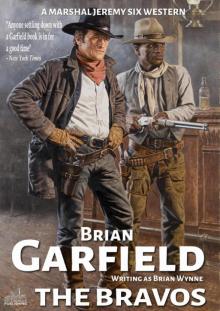 Marshal Jeremy Six #3
Marshal Jeremy Six #3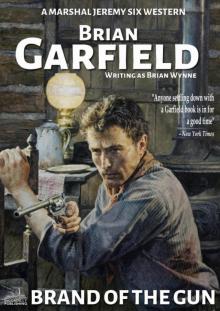 Marshal Jeremy Six #6
Marshal Jeremy Six #6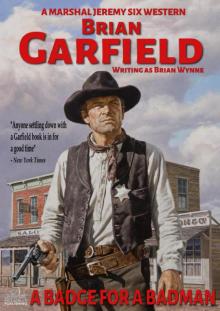 Marshal Jeremy Six #5
Marshal Jeremy Six #5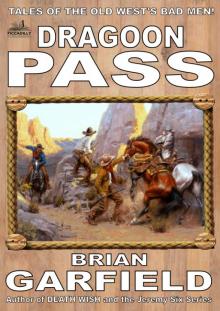 The Outlaws 2
The Outlaws 2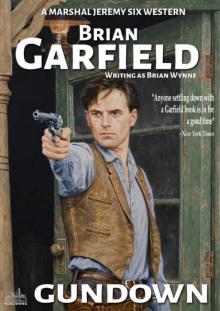 Marshal Jeremy Six #7
Marshal Jeremy Six #7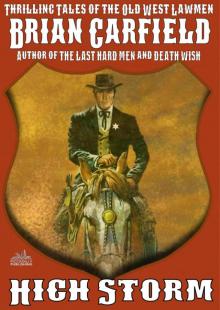 The Lawbringers 4
The Lawbringers 4 Marshal Jeremy Six #4 the Proud Riders
Marshal Jeremy Six #4 the Proud Riders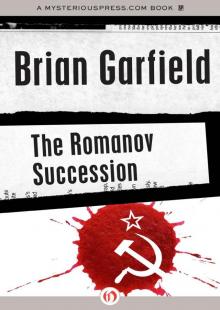 The Romanov succession
The Romanov succession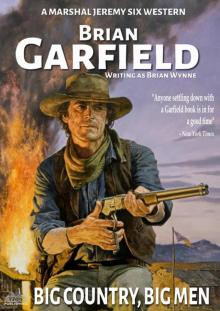 Marshal Jeremy Six #8
Marshal Jeremy Six #8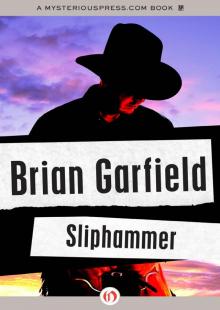 Sliphammer
Sliphammer Line of Succession
Line of Succession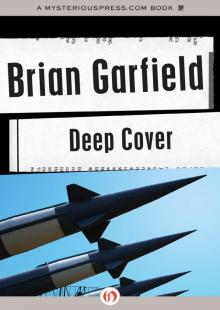 Deep Cover
Deep Cover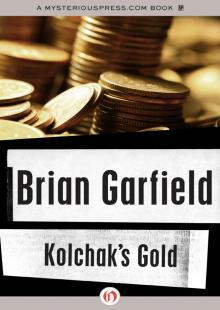 Kolchak's Gold
Kolchak's Gold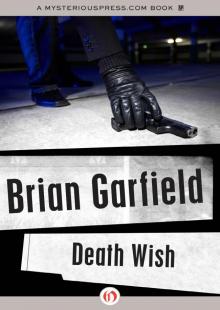 Death Wish
Death Wish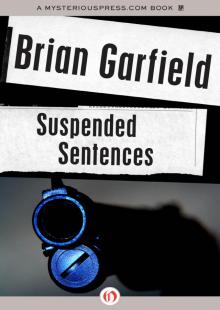 Suspended Sentences
Suspended Sentences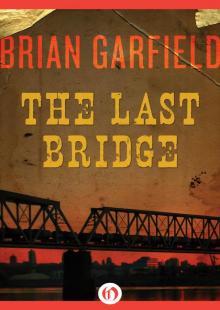 The Last Bridge
The Last Bridge Relentless
Relentless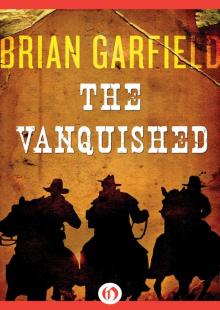 The Vanquished
The Vanquished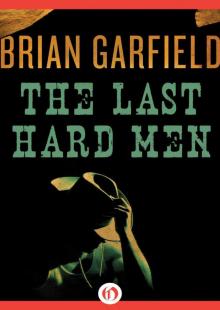 The Last Hard Men
The Last Hard Men Hit and The Marksman
Hit and The Marksman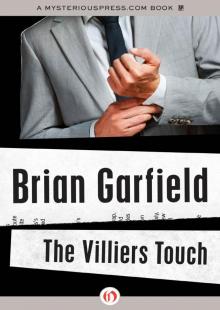 Villiers Touch
Villiers Touch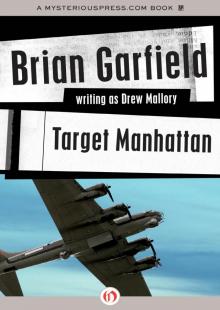 Target Manhattan
Target Manhattan Marchand Woman
Marchand Woman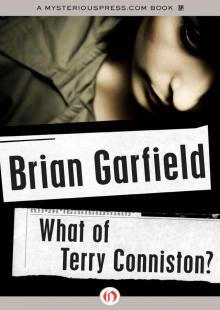 What of Terry Conniston?
What of Terry Conniston?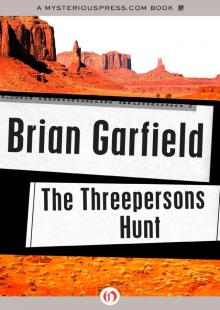 Threepersons Hunt
Threepersons Hunt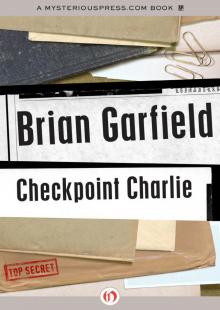 Checkpoint Charlie
Checkpoint Charlie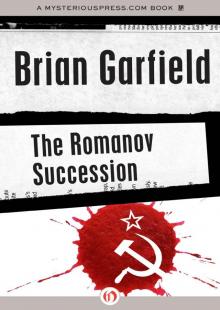 Romanov Succession
Romanov Succession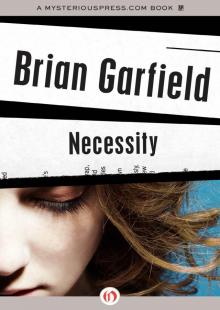 Necessity
Necessity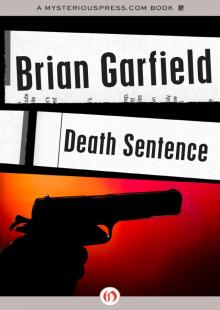 Death Sentence
Death Sentence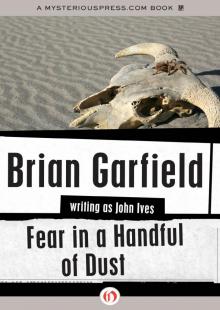 Fear in a Handful of Dust
Fear in a Handful of Dust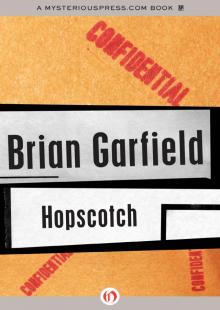 Hopscotch
Hopscotch